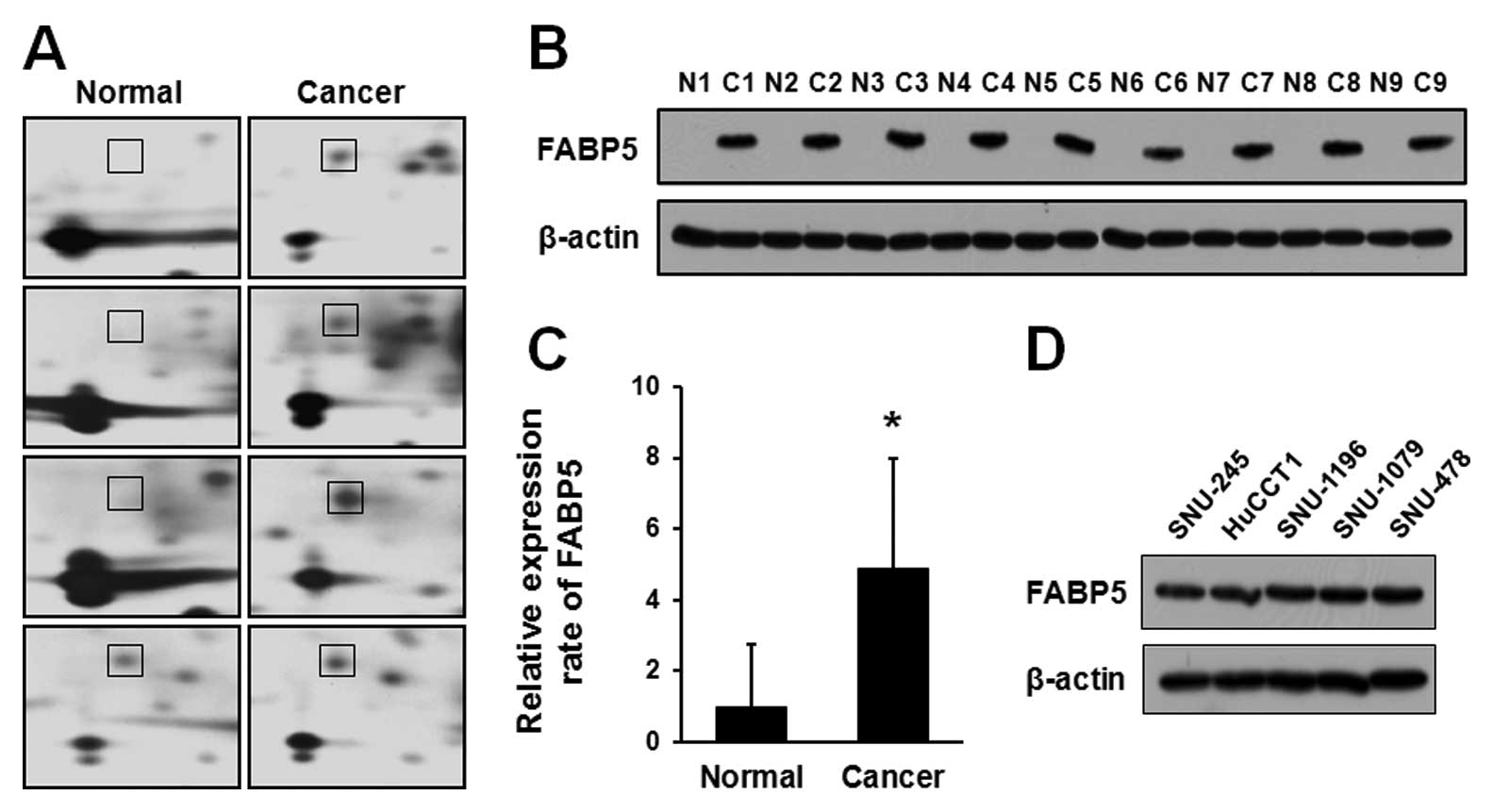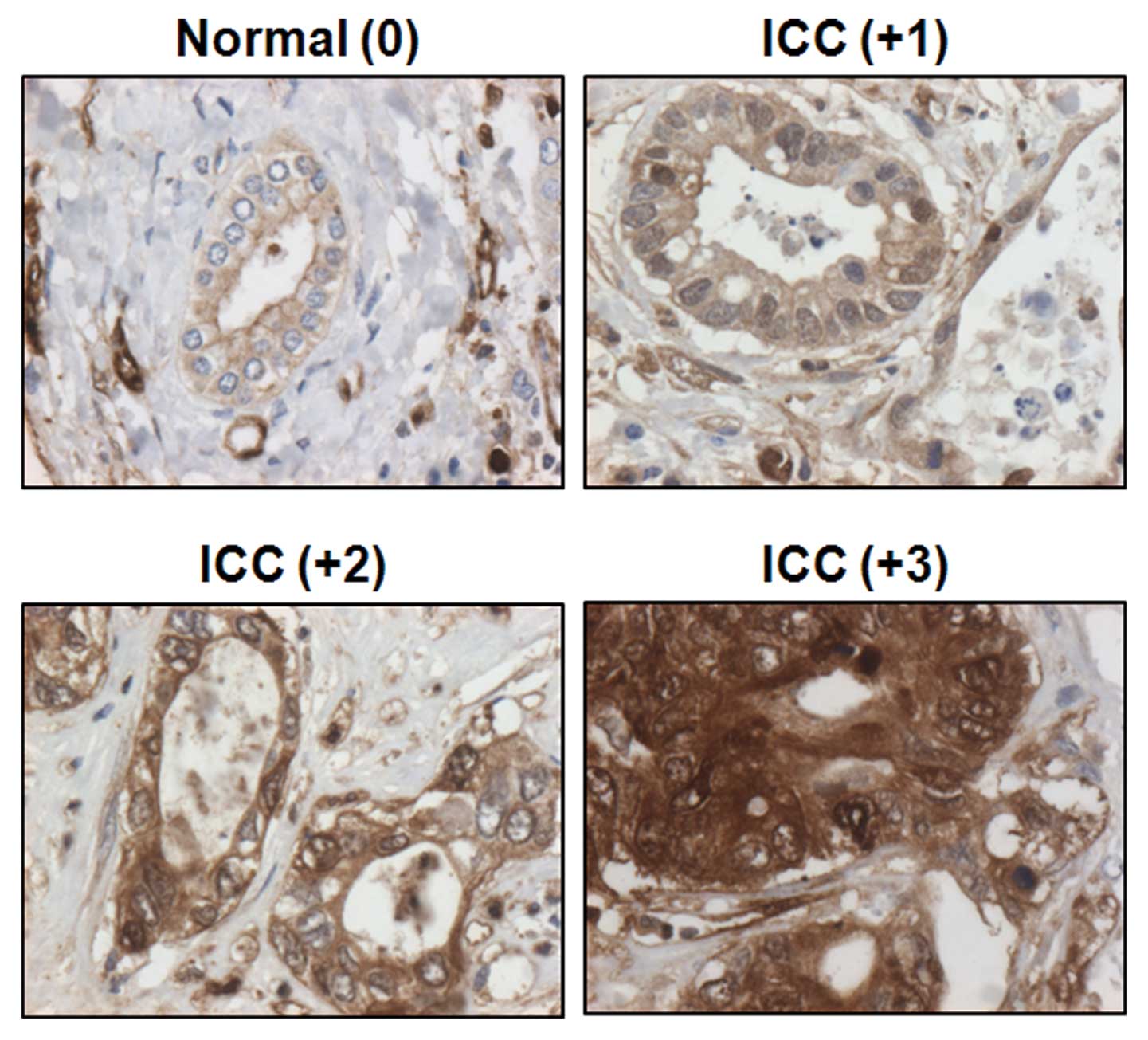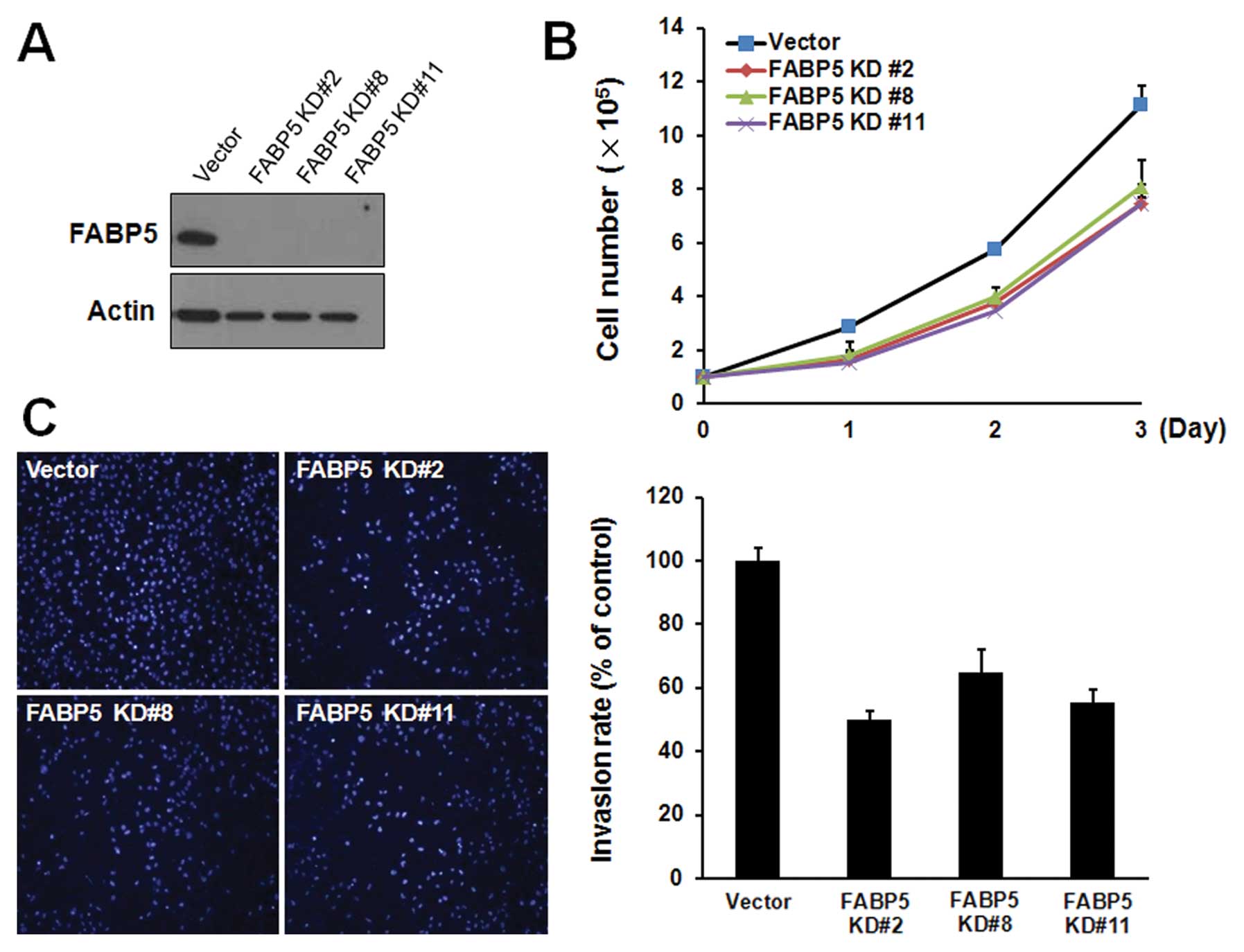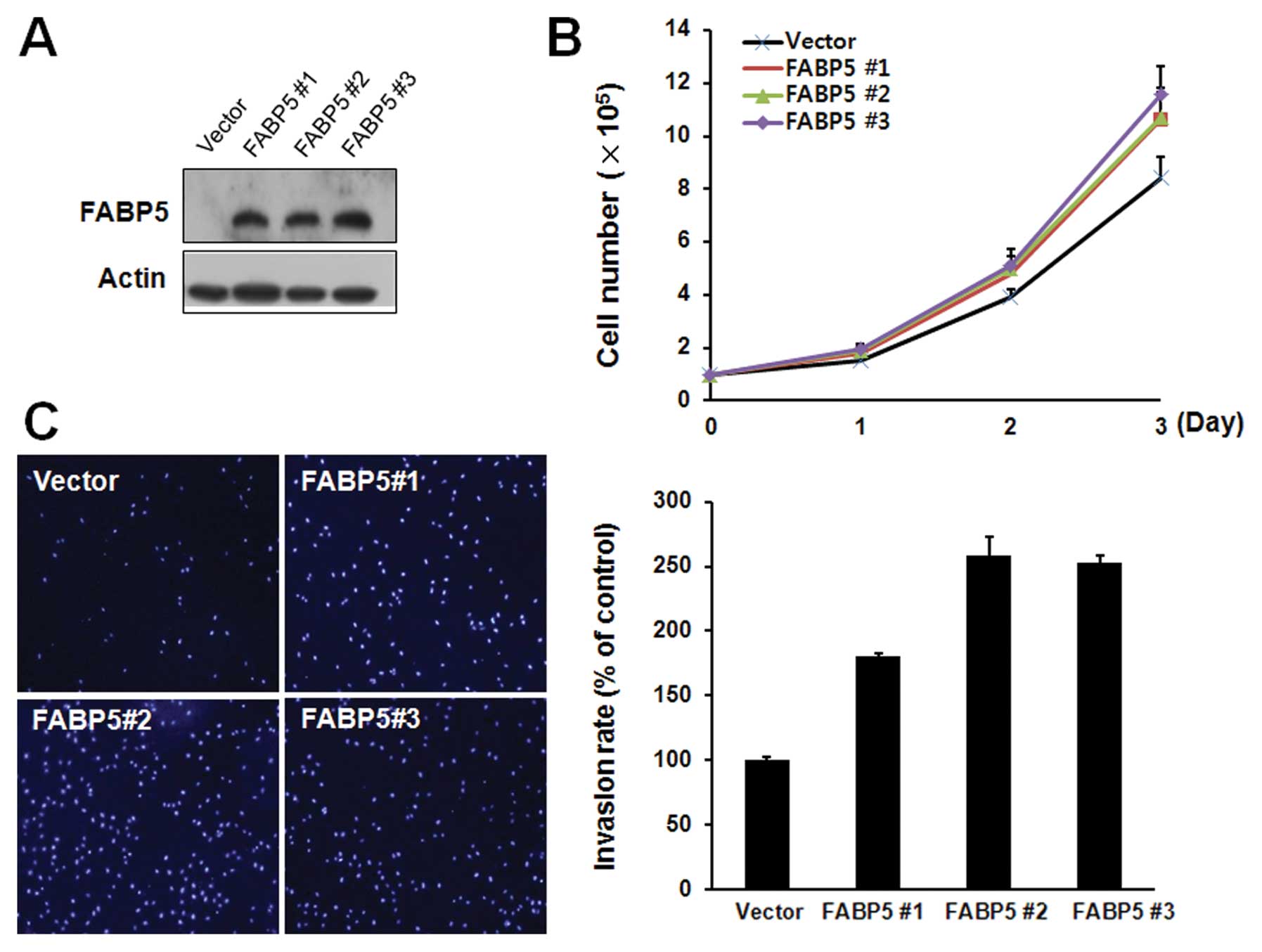|
1
|
Blechacz B and Gores GJ:
Cholangiocarcinoma: advances in pathogenesis, diagnosis and
treatment. Hepatology. 48:308–321. 2008. View Article : Google Scholar : PubMed/NCBI
|
|
2
|
Okabayashi T, Yamamoto J, Kosuge T,
Shimada K, Yamasaki S, Takayama T and Makuuchi M: A new staging
system for mass-forming intrahepatic cholangiocarcinoma. Cancer.
92:2374–2383. 2001. View Article : Google Scholar : PubMed/NCBI
|
|
3
|
Guglielmi A, Ruzzenente A, Campagnaro T,
Pachera S, Valdegamberi A, Nicoli P, Cappellani A, Malfermoni G and
Iacono C: Intrahepatic cholangiocarcinoma: prognostic factors after
surgical resection. World J Surg. 33:1247–1254. 2009. View Article : Google Scholar : PubMed/NCBI
|
|
4
|
Choi SB, Kim KS, Choi JY, Park SW, Choi
JS, Lee WJ and Chung JB: The prognosis and survival outcome of
intrahepatic cholangiocarcinoma following surgical resection:
association of lymph node metastasis and lymph node dissection with
survival. Ann Surg Oncol. 16:3048–3056. 2009. View Article : Google Scholar
|
|
5
|
Zimmerman AW and Veerkamp JH: New insights
into the structure and function of fatty acid-binding proteins.
Cell Mol Life Sci. 59:1096–1116. 2002. View Article : Google Scholar : PubMed/NCBI
|
|
6
|
Coe NR and Bernlohr DA: Physiological
properties and functions of intracellular fatty acid-binding
proteins. Biochim Biophys Acta. 1391:287–306. 1998. View Article : Google Scholar : PubMed/NCBI
|
|
7
|
Glatz JF and Storch J: Unravelling the
significance of cellular fatty acid-binding proteins. Curr Opin
Lipidol. 12:267–274. 2001. View Article : Google Scholar : PubMed/NCBI
|
|
8
|
Madsen P, Rasmussen HH, Leffers H, Honoré
B and Celis JE: Molecular cloning and expression of a novel
keratinocyte protein (psoriasis-associated fatty acid-binding
protein [PA-FABP]) that is highly up-regulated in psoriatic skin
and that shares similarity to fatty acid-binding proteins. J Invest
Dermatol. 99:299–305. 1992.PubMed/NCBI
|
|
9
|
Haunerland NH and Spener F: Fatty
acid-binding proteins - insights from genetic manipulations. Prog
Lipid Res. 43:328–349. 2004. View Article : Google Scholar : PubMed/NCBI
|
|
10
|
Sinha P, Hütter G, Köttgen E, Dietel M,
Schadendorf D and Lage H: Increased expression of epidermal fatty
acid binding protein, cofilin and 14-3-3-sigma (stratifin) detected
by two-dimensional gel electrophoresis, mass spectrometry and
microsequencing of drug-resistant human adenocarcinoma of the
pancreas. Electrophoresis. 20:2952–2960. 1999. View Article : Google Scholar
|
|
11
|
Ostergaard M, Rasmussen HH, Nielsen HV,
Vorum H, Orntoft TF, Wolf H and Celis JE: Proteome profiling of
bladder squamous cell carcinomas: identification of markers that
define their degree of differentiation. Cancer Res. 57:4111–4117.
1997.PubMed/NCBI
|
|
12
|
Adamson J, Morgan EA, Beesley C, Mei Y,
Foster CS, Fujii H, Rudland PS, Smith PH and Ke Y: High-level
expression of cutaneous fatty acid-binding protein in prostatic
carcinomas and its effect on tumorigenicity. Oncogene.
22:2739–2749. 2003. View Article : Google Scholar : PubMed/NCBI
|
|
13
|
Xu HE, Lambert MH and Montana VG:
Molecular recognition of fatty acids by peroxisome
proliferator-activated receptors. Mol Cell. 3:397–403. 1999.
View Article : Google Scholar : PubMed/NCBI
|
|
14
|
Morgan E, Kannan-Thulasiraman P and Noy N:
Involvement of fatty acid binding protein 5 and PPARβ/δ in prostate
cancer cell growth. PPAR Res. 2010:2346292010.
|
|
15
|
Jung EJ, Moon HG and Cho BI: Galectin-1
expression in cancer-associated stromal cells correlates tumor
invasiveness and tumor progression in breast cancer. Int J Cancer.
120:2331–2338. 2007. View Article : Google Scholar : PubMed/NCBI
|
|
16
|
Landry F, Lombardo CR and Smith JW: A
method for application of samples to matrix-assisted laser
desorption ionization time-of-flight targets that enhances peptide
detection. Anal Biochem. 279:1–8. 2000. View Article : Google Scholar : PubMed/NCBI
|
|
17
|
Yates JR: Database searching using mass
spectrometry data. Electrophoresis. 19:893–900. 1998. View Article : Google Scholar : PubMed/NCBI
|
|
18
|
Hsu SM, Raine L and Fanger H: Use of
avidin-biotin-peroxidase complex (ABC) in immunoperoxidase
techniques: a comparison between ABC and unlabeled antibody (PAP)
procedures. J Histochem Cytochem. 29:577–580. 1981. View Article : Google Scholar
|
|
19
|
Fang LY, Wong TY, Chiang WF and Chen YL:
Fatty-acid-binding protein 5 promotes cell proliferation and
invasion in oral squamous cell carcinoma. J Oral Pathol Med.
39:342–348. 2010. View Article : Google Scholar : PubMed/NCBI
|
|
20
|
Sirica AE: Cholangiocarcinoma: molecular
targeting strategies for chemoprevention and therapy. Hepatology.
41:5–15. 2005. View Article : Google Scholar : PubMed/NCBI
|
|
21
|
Shimonishi T, Sasaki M and Nakanuma Y:
Precancerous lesions of intrahepatic cholangiocarcinoma. J
Hepatobiliary Pancreat Surg. 7:542–550. 2000. View Article : Google Scholar
|
|
22
|
Kawase H, Fujii K, Miyamoto M, Kubota KC,
Hirano S, Kondo S and Inagaki F: Differential LC-MS-based
proteomics of surgical human cholangiocarcinoma tissues. J Proteome
Res. 8:4092–4103. 2009. View Article : Google Scholar : PubMed/NCBI
|
|
23
|
Srisomsap C, Sawangareetrakul P,
Subhasitanont P, Panichakul T, Keeratichamroen S, Lirdprapamongkol
K, Chokchaichamnankit D, Sirisinha S and Svasti J: Proteomic
analysis of cholangiocarcinoma cell line. Proteomics. 4:1135–1144.
2004. View Article : Google Scholar : PubMed/NCBI
|
|
24
|
Jing C, Beesley C, Foster CS, Chen H,
Rudland PS, West DC, Fujii H, Smith PH and Ke Y: Human cutaneous
fatty acid-binding protein induces metastasis by up-regulating the
expression of vascular endothelial growth factor gene in rat Rama
37 model cells. Cancer Res. 61:4357–4364. 2001.
|
|
25
|
Fujii K, Kondo T, Yokoo H, Yamada T,
Iwatsuki K and Hirohashi S: Proteomic study of human hepatocellular
carcinoma using two-dimensional difference gel electrophoresis with
saturation cysteine dye. Proteomics. 5:1411–1422. 2005. View Article : Google Scholar : PubMed/NCBI
|
|
26
|
Glatz JFC, Schaap FG, Binas B, Bonen A,
van der Vusse GJ and Luiken J: Cytoplasmic fatty acid-binding
protein facilitates fatty acid utilization by skeletal muscle. Acta
Physiol Scand. 178:367–371. 2003. View Article : Google Scholar : PubMed/NCBI
|
|
27
|
Schroeder F, Petrescu AD, Huang H,
Atshaves BP, McIntosh AL, Martin GG, Hostetler HA, Vespa A,
Landrock D and Landrock KK: Role of fatty acid binding proteins and
long chain fatty acids in modulating nuclear receptors and gene
transcription. Lipids. 43:1–17. 2008. View Article : Google Scholar : PubMed/NCBI
|
|
28
|
Desvergne B and Wahli W: Peroxisome
proliferator-activated receptors: nuclear control of metabolism.
Endocr Rev. 20:649–688. 1999.PubMed/NCBI
|
|
29
|
Lim K, Han C, Xu L, Isse K, Demetris AJ
and Wu T: Cyclooxygenase-2-derived prostaglandin E2 activates
beta-catenin in human cholangiocarcinoma cells: evidence for
inhibition of these signaling pathways by omega 3 polyunsaturated
fatty acids. Cancer Res. 68:553–560. 2008. View Article : Google Scholar
|
|
30
|
Wu T: Cyclooxygenase-2 and prostaglandin
signaling in cholangiocarcinoma. Biochim Biophys Acta.
1755:135–150. 2005.PubMed/NCBI
|
|
31
|
Xu L, Han C and Wu T: A novel positive
feedback loop between peroxisome proliferator-activated
receptor-delta and prostaglandin E2 signaling pathways for human
cholangiocarcinoma cell growth. J Biol Chem. 281:33982–33996. 2006.
View Article : Google Scholar
|


















